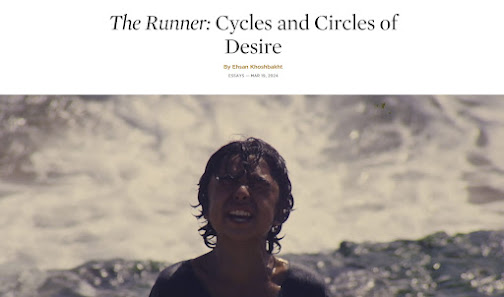 |
A dazed boy is standing on the beach, hollering at the ships leaving the Persian Gulf for other worlds. The vessels of escape, carrying oil tanks and dreams, are fading ghosts on a pale horizon. To overcome a world full of hostility and indifference, the boy must learn to run.
Amir Naderi’s autobiographical masterpiece The Runner (1984) was one of the first postrevolutionary Iranian films screened and celebrated internationally. The epic scene of boys racing across the oil field toward a cube of melting ice, their trophy, became the emblem of the new Iranian cinema that emerged in the 1980s.
Amiro is an orphan living in the southern Iranian port city of Abadan, working odd jobs until he realizes that he has to better his life by learning to read and to run—the first in recognition that other worlds exist, and the second in order to reach them. Paradoxically, this film that sizzles with the desire for freedom was made in 1983–84, the darkest years of Iran’s recent history, when the grip of the Islamic regime on every aspect of life, including the newly nationalized Iranian cinema, became total.



.jpg)

.jpg)

.jpg)



-(1)___frontend-16x9_1024_576.jpg)




.jpg)
_01.jpg)









.jpg)